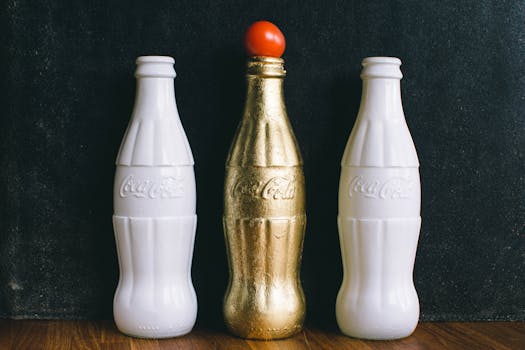+17162654855
+17162654855
DMV Publication News serves as an authoritative platform for delivering the latest industry updates, research insights, and significant developments across various sectors. Our news articles provide a comprehensive view of market trends, key findings, and groundbreaking initiatives, ensuring businesses and professionals stay ahead in a competitive landscape.
The News section on DMV Publication News highlights major industry events such as product launches, market expansions, mergers and acquisitions, financial reports, and strategic collaborations. This dedicated space allows businesses to gain valuable insights into evolving market dynamics, empowering them to make informed decisions.
At DMV Publication News, we cover a diverse range of industries, including Healthcare, Automotive, Utilities, Materials, Chemicals, Energy, Telecommunications, Technology, Financials, and Consumer Goods. Our mission is to ensure that professionals across these sectors have access to high-quality, data-driven news that shapes their industry’s future.
By featuring key industry updates and expert insights, DMV Publication News enhances brand visibility, credibility, and engagement for businesses worldwide. Whether it's the latest technological breakthrough or emerging market opportunities, our platform serves as a bridge between industry leaders, stakeholders, and decision-makers.
Stay informed with DMV Publication News – your trusted source for impactful industry news.
Materials

**
British Glass Sounds Alarm: Extended Producer Responsibility (EPR) Fees Threaten UK Recycling Rates & Brand Sustainability
The UK's ambitious Extended Producer Responsibility (EPR) scheme, designed to boost recycling rates and reduce waste, is facing serious criticism from British Glass. The organization warns that the current fee structure for packaging EPR, particularly for glass, risks backfiring, potentially driving brands towards less-recyclable materials and ultimately undermining the very goals the scheme aims to achieve. This has major implications for the circular economy, sustainable packaging, and the future of glass recycling in the UK.
The EPR system places responsibility for the end-of-life management of packaging on producers. While intended to incentivize sustainable packaging design and increase recycling, British Glass argues the current implementation disproportionately impacts glass, potentially pushing companies to opt for less environmentally friendly alternatives like plastic. This unintended consequence could severely hinder the UK's progress towards its ambitious recycling targets and damage the country's reputation for environmental leadership.
The core issue, according to British Glass, lies in the relative cost of recycling different materials. While the EPR scheme aims to level the playing field, the current fees for glass recycling are perceived as significantly higher than those for other materials, particularly plastics. This makes glass a less attractive option for brands concerned with minimizing their environmental footprint and managing their packaging costs.
The increased cost associated with glass packaging, fuelled by the EPR fee structure, can have a ripple effect throughout the supply chain. This added expense is particularly concerning for smaller businesses and startups who may be forced to choose cheaper, less sustainable options to remain competitive. This ultimately undermines the environmental benefits intended by the EPR scheme.
This situation threatens the UK's progress toward a thriving circular economy. A circular economy relies on the efficient recycling and reuse of materials, reducing waste and minimizing reliance on virgin resources. By inadvertently making glass less economically viable, the current EPR scheme hinders this crucial transition.
The concern extends beyond simply the choice of material. The shift away from glass could have wider repercussions for the overall sustainability of the packaging industry. Glass is infinitely recyclable, meaning it can be repeatedly recycled without loss of quality. Plastics, on the other hand, often degrade in quality with each recycling cycle, requiring more energy and resources for processing.
Further compounding the problem, British Glass raises concerns about the inconsistent application of EPR fees across different materials. The organization believes the current system fails to adequately reflect the varying environmental impacts and recycling challenges associated with various packaging types. This disparity makes it challenging for brands to make truly informed, environmentally responsible choices.
British Glass is calling for urgent reform of the EPR system to ensure it effectively supports the UK's recycling ambitions. Key recommendations include:
The organization also stresses the importance of investing in improved glass recycling infrastructure to enhance efficiency and reduce costs. This includes increasing the capacity of MRFs (Material Recovery Facilities) and improving the collection and sorting processes for glass.
The future of glass recycling in the UK hangs in the balance. The current EPR system, while well-intentioned, is potentially counterproductive if it inadvertently incentivizes the use of less sustainable materials. Urgent action is needed to address the concerns raised by British Glass to ensure the scheme successfully promotes sustainable packaging and a thriving circular economy. Failure to act could lead to a significant setback in the UK's efforts to reduce waste and protect the environment. The potential negative impact on jobs within the glass industry and related sectors also needs to be considered.
This situation highlights the complexity of implementing effective environmental policies and the crucial role of stakeholder collaboration in achieving sustainable outcomes. The EPR scheme needs to be carefully calibrated to reward environmentally friendly choices and incentivize the use of infinitely recyclable materials like glass, ensuring a sustainable future for the UK's packaging and recycling industry.